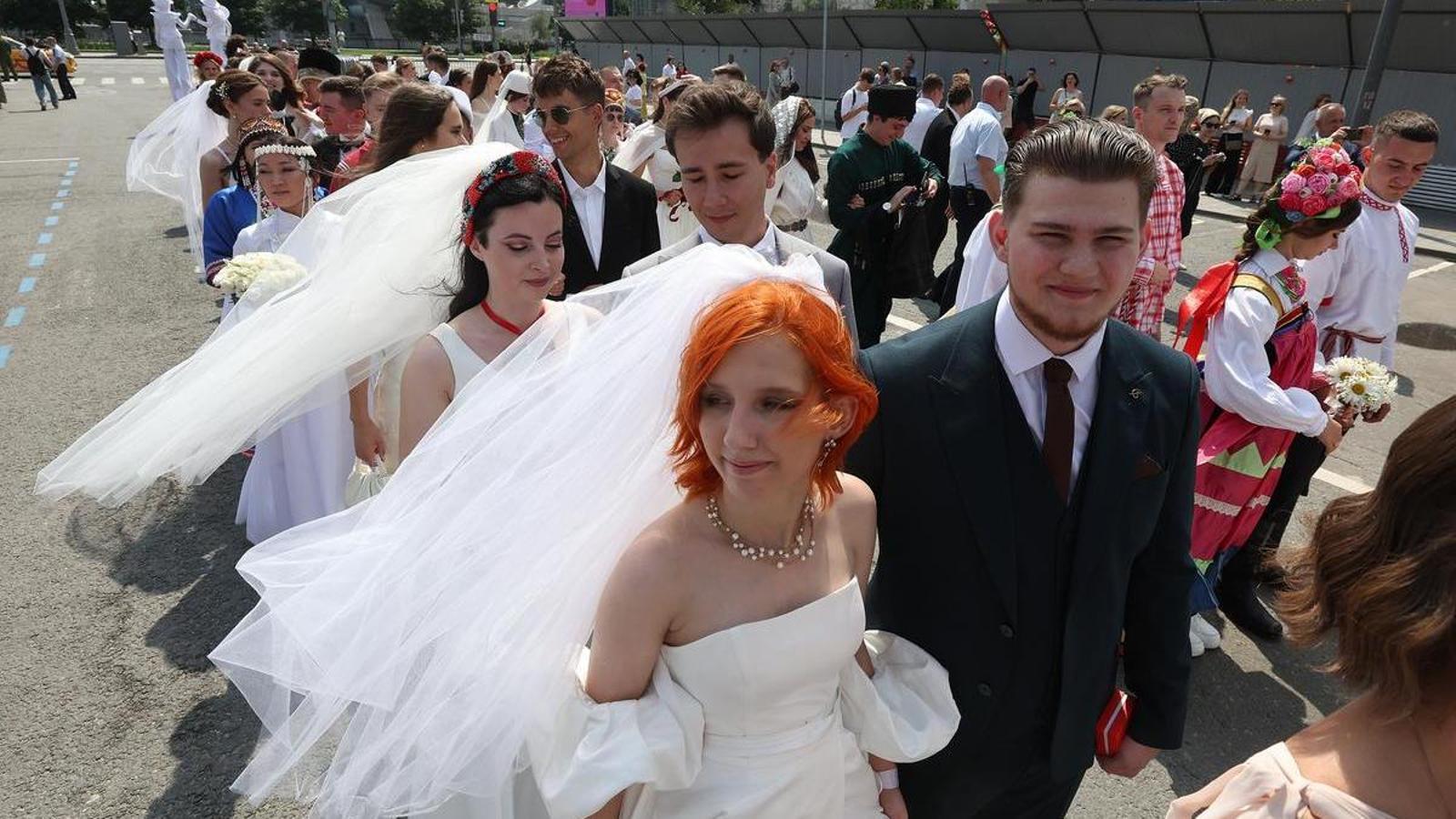Putin's great obsession: getting Russians to have more children
The Kremlin is fighting the demographic crisis with fines for those who defend a child-free life.


MoscowVladimir Putin is obsessed with Russians having more children and takes every opportunity to remind them of this. "If we want to survive as an ethnic group, we need at least two children per family," he once said. "Many grandmothers and great-grandmothers had seven, eight, or more children. Let's preserve and revive these traditions," he added in another comment. The demographic crisis has been dragging Russia down for over a decade. The Kremlin's goal is to reverse population growth by 2030, and that's why Putin insists on increasing the ratio of 1.4 children per woman to 2.1.
However, the Russian government's policy isn't working. For this reason, Rosstat, the national statistics agency, recently stopped publishing most demographic data. "The level of hysteria in the ministries has reached epic proportions," explains Aleksei Rakxa, a demographer classified by the Kremlin as a "foreign agent" on his Telegram channel, the legal term used to discredit any critical voice. According to his calculations, the birth rate continues to decline: by the end of 2025, in the best-case scenario, 1.18 million children will have been born, between 4% and 5% less than the 1.22 million born last year. These are figures not seen since the end of the 18th century. On the other hand, the number of deaths is rising slightly, by 0.3%, to almost 1.85 million. The war in Ukraine is one of the reasons for the rising mortality rate. that the government hides and that also causes life expectancy to stagnate.
Checks for pregnant teenagers
"Large families must become the norm," Putin asserts. That's why the Russian Parliament is legislating at breakneck speed to promote the birth of three or more children per family unit, and Senate Speaker Valentina Matvienko has even gone so far as to claim that "demographic special forces" have been created. In total, Russia plans to allocate the equivalent of almost €400 million over three years to promote births. Large families receive all kinds of bonuses depending on the number of children they have: baby vouchers, mortgage assistance, exemptions from childcare, discounts on essential services and public transportation, and tax deductions.
Among the most controversial incentives is the payment in some regions to pregnant teenagers. In a country where abortion remains legal but is increasingly restricted, governors such as those of Oryol, Bryansk, and Kemerovo have promised subsidies equivalent to around €1,100 for families of early mothers of school age. This week, however, the governor of Oriol complained that, despite the measure, no minors have become pregnant. According to the media7x7, at least forty regions have also pledged to give that amount of money to university students who have children.
However, as a Russian demographer who prefers to remain anonymous explains in ARA, "a system of economic and psychological incentives that encourages people to have children and rewards them for having more has never been effective." He adds: "If the state pays more for the second child than for the first, and more for the third than for the second, and if childlessness is punished with special taxes, then we are dealing with a pro-natalist state."
Fines for not wanting to have children
Sanctions against those who do not want children are the other side of Putin's strategy to combat the demographic crisis. Since the end of last year, fines of more than 4,000 euros have been imposed on people who advertise a childless life, and the Ministry of Culture has proposed banning films in which women prioritize their careers over having children.
These are not the only punitive initiatives conceived by Russian politicians. Putin's party deputy Vitaly Milonov proposed reinstating the Stalinist tax on singleness. He was supported by Senator Margarita Pavlova, who also called for cutting certain social rights for single people, and by the director of the Institute for Social and Economic Research, Alexei Zubets, who recommended that childless families compensate the Treasury with more than 400 euros.
But no matter how much the Kremlin dangles the carrot and threatens with the stick, the reality is that in Russia there is a problem of material conditions for procreation: the economy is on the verge of recession and interest rates (now at 18% and for months at 21%) make access very difficult. "No policy will be effective if it goes against the interests of the most widespread type of urban families, women and young people," the demographer warns to ARA.
According to him, calls to increase birth rates and fertility always come from conservative or dictatorial regimes looking for more soldiers and more labor. The Russian government estimates that almost eleven million workers will be needed in 2030, while Putin has just made the largest call-up to military service since 2011The demographer warns: "The emergence of state pronatalism is, first, the beginning of a war against one's own people, and then, against other peoples."
